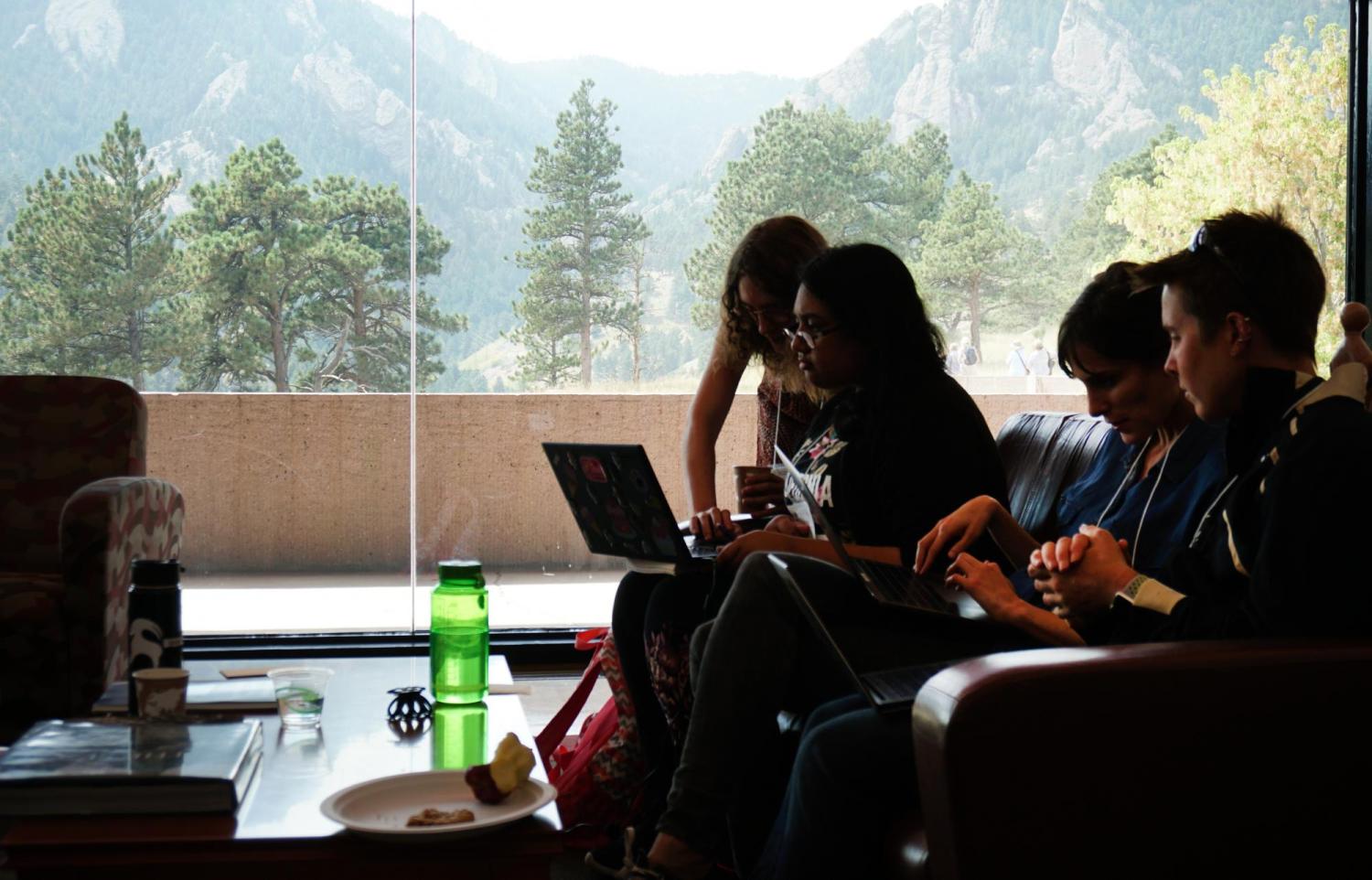Climate and data scientists join forces on storm prediction

A hackathon with a view!
At a hackathon in Boulder this week, dozens of data and climate scientists came together to work on how to better predict extreme storms like Hurricane Florence.
The hackathon was part of the 8th International Workshop on Climate Informatics, which drew more than 100 researchers to the National Center for Atmospheric Research’s Mesa Lab. Claire Monteleoni, a new associate professor with the Department of Computer Science, co-founded the workshop with NASA climate scientist Gavin Schmidt in 2011.
“Within five years, the workshop attracted climate scientists and data scientists from over 19 countries and 30 U.S. states,” Monteleoni said. “We’re all interested in how machine learning and data science can help accelerate discovery in climate science.”
Over the past three years, the one-day hackathon has tackled several crucial prediction problems, including El Niño, sea ice extent and California extreme temperatures.
The workshop also includes presentations on emerging research in climate informatics. Sophie Giffard-Roisin, a postdoctoral researcher in Monteleoni’s lab, presented their newest paper on fused deep learning for forecasting the track of hurricanes – findings which could help reduce the “cone of uncertainty” when hurricanes approach coastlines.
This year, the group also introduced an industry panel, which included participants from INVIDIA, Jupiter, Google and Xerox PARC.


